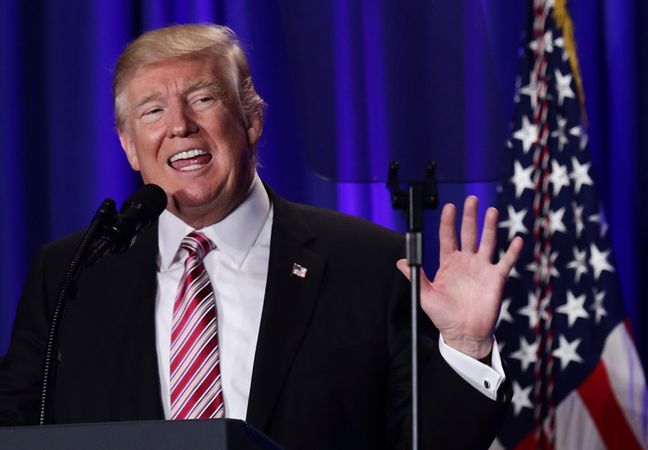
For Mark Beeson, there is no better time to be teaching international affairs than now. Hardly a day goes by without new shocking revelations coming to light about how ideologically divided the United States is these days.
And President Donald Trump’s antagonistic positions on numerous issues are a textbook case of what a global leader should not have adopted.
But underneath the polished intellectual exterior, the professor of international politics at the University of Western Australia is deeply worried.
The unpredictability of Trump’s leadership is a big test for the rest of the world as a misguided response could bring cataclysmic consequences.
“It’s now quite a remarkably interesting time, and quite an unsettling one,” said the Australian. “The Trump administration sends out contradictory signals all the time. So it’s really hard for friends and foes to know what they are likely to do.”
The Trump presidency brings uncertainty to the already debilitated relationships of powerful nations. On the global economic front, Trump kept his election promise and ripped up his predecessor’s Trans-Pacific Partnership trade agreement on his first day in office.
The decision to kill off one of the most far-reaching and binding free trade agreements has effectively snubbed America’s closest allies, Australia, Canada and Japan, which are signatories.
“That’s been a real blow for many of the countries in Asia, particularly to Australia and Japan, which has put a lot of time and effort in trying to get that agreement up. It was a good agreement,” Beeson said.
“In fact, as far as America’s national interests go, the TPP might not have been done too badly by its multinational corporations. So you have got to wonder about whether the Trump administration really understands the nature of that agreement and global trade.”
China, America’s strongest competitor in jockeying for world dominance, is also receiving the same incoherent, and at times, contentious treatment.
Trump has yet to slap a 45 percent tariff on Chinese imports as promised, but did reiterate last week his stern stance on China. The latest rhetoric saw the new White House occupant slamming the Chinese as the “grand champions” of currency manipulation. But then immediately, his Secretary of the Treasury Steven Mnuchin softened the tone at another occasion.
In stark contrast to Trump’s protectionist “America first” policy is President Xi Jinping’s defense of a liberalized global trade system. There are several free trade initiatives already in discussion that look destined to cement China’s dominance in Asia.
For example, the ASEAN-sponsored Regional Comprehensive Economic Partnership and the Free Trade Area of the Asia-Pacific. The United States was not involved in either before Trump was elected so it is highly unlikely that it will get involved now.
“They are both potentially significant if China will be the driving force behind them,” Beeson said. “Yet, there is a big debate around how serious and willing China would be about actually following through what it has implied doing.”
China’s growing influence has unnerved the China hawks in the Trump administration. Key skeptics include trade chief Peter Navarro and Secretary of State Rex Tillerson. They advocate a more combative rhetoric toward China economically and militarily.
“Navarro has a very old-fashioned mercantilist, zero-sum view. He turns out to be a big influence on Trump, who doesn’t seem to have a fixed position on trade. Trump is clearly open to be influenced,” Beeson said.
“Tillerson has said the United States is going to stop China from reinforcing in the South China Sea. The only realistic possibility to doing that is by military means. Trump has already said he would increase the size of the navy from 272 to 355 ships.”
“The Chinese government will find it difficult to back away from their claims and desire to remain in control of those islands. The dangerous thing on both sides now is that they are both painting themselves into a corner from which it is very difficult to retreat.”
The war of words between the two superpowers not only would end up turning Asia Pacific into a flash point for an actual war, but also hurt innocent bystanders economically as the United States has been a key importer of goods produced in the region since the East Asian miracle.
Smaller entities in this part of the world, such as Hong Kong and Taiwan, regardless of where their allegiance lies, will become “the meat in the sandwich” to the transactional approach to diplomacy of the two great powers.
“It’s naive to have blind faith in any allies or alleged friends. All countries pursue what could be in their national interest to some extent. But it’s much more consequential when the country is America or China,” Beeson said. “Their ideas of pursuing their national interests have ramifications for the world.”
“So can countries trust them? Probably not in the sense of whether they are going to stick to their words if the circumstance doesn’t suit them or there is a change of administration.”
The article first appeared in the Standard on March 7, 2017.